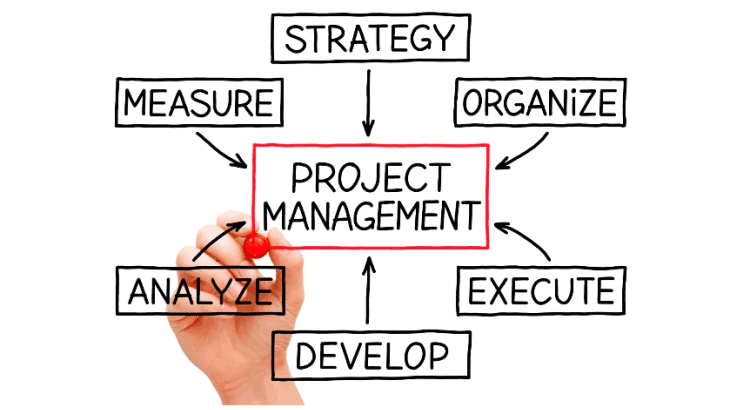
Project Management
One of the biggest problems we see every day is projects starting without a clear scope and defined KPIs to measure its performance. And why this happens? There are many explanations (excuses): “we started in a hurry”, “the client didn’t knew exactly what he wanted”, “we don’t have a tool to measure results”, “the scope changed so many times”.
And why is that a problem? Because without the proper scope and KPIs you cannot manage properly the project neither understand its outcomes. So, you can’t repeat its success nor improve your process.
Solution: If you want to fix this, just give it a try to ask to your team this simple questions before starting your next project:
1- Where do we want to get at the end?
2- When will we get there?
3- How do we expect to do that?
4- How can we measure it?
5- Who is responsible for following up and measuring it?
6- How can I share the results with my team?

When it comes to what SMEs should invest in, generally project management isn’t the first thing on the list. There are a number of reasons for this, but the main one is the fact that it is something that many small businesses believe they can manage without having to invest in a particular person. However, a lot of the time, this ends up meaning budgets are overstretched or ignored and projects tend to not finish on time. Here, we’re taking a look at the main benefits of project management for SMEs and just why small businesses should invest in them – whether that’s through sending an employee on one of the in-depth six sigma courses from The Knowledge Academy, or investing in an existing project manager.
Risk Management
One of the major benefits to effective project management is the fact that you can better manage the risks and downsides to nay project that you may be initiating or taking on. Risk management is particularly important for SMEs, as one of the major downsides to them is taking on projects that are too big to handle, simply as a competition factor. Project management is an efficient and responsible way to better manage a project as a whole, and therefore all of the risks that the project itself might entail.
Budgeting & Costing
A major issue for any sized business, let alone SMEs, is projects that go over budget. This tends to come from lack of preparation, or needing additional resources that were not accounted for when the project was initially planned. Helping your employees to budget properly and add up any forms of costings is not only beneficial for the project that you are beginning, it is also exceptionally important for the future of the business. Being able to appropriately budget for any form of business venture that you may face is particularly important.
Customer Satisfaction
A major part of effective project management is the impact it has on your customers. If you can deliver your customer’s projects on time, then they will stay happy. Customer satisfaction plays an important role in the success of SMEs and project management can have a huge influence on this. Not only will it allow you to deliver your projects on time, it can also help to ensure that you are adapting your methods in order to help improve your product and service delivery. Project management isn’t just about managing a project effectively – it can have a much broader impact on the way your customers perceive your business.
Managing Quality
As mentioned previously, effective project management will help to ensure that your business is producing quality projects on a regular basis. Not only are you helping to produce the project on time and within budget to suit your business, if you plan it out properly and create certain expectation and deadlines, then the quality of the final product is going to be much higher than a rushed project that is over budget. There’s a lot for SMEs to consider when it comes to starting up, but one thing that they shouldn’t forget in order to guarantee that their business runs smoothly, is effective project management.

